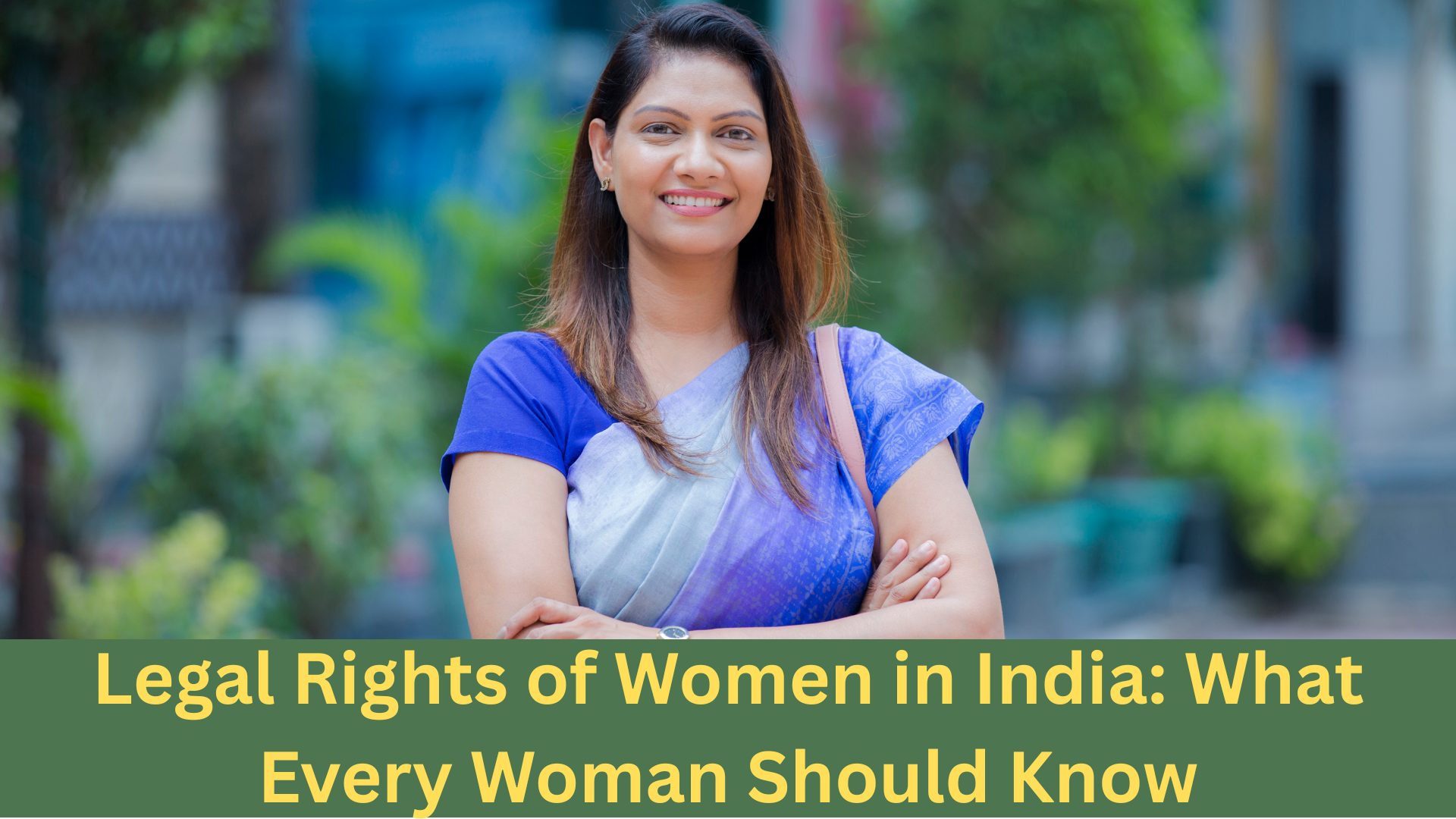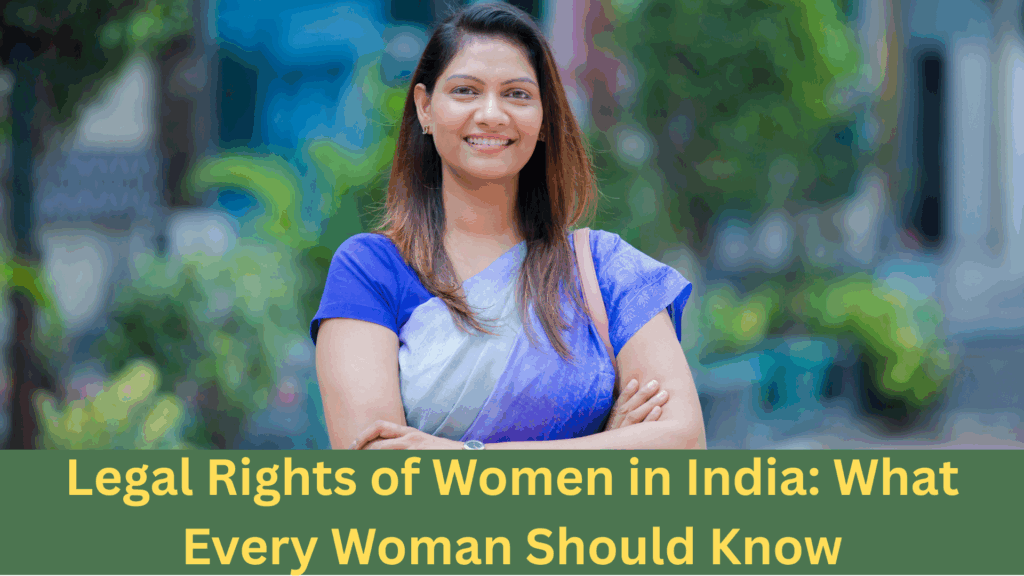Every woman should read this post and know about the Legal Rights of Women in India. What Every Woman Should Know is discussed here in excellent depth.
Legal Rights of Women in India: What Every Woman Should Know
India’s legal framework provides several important rights to women, aimed at ensuring equality, dignity, and protection under the law. While constitutional guarantees form the backbone of gender justice, many specific legislations address the unique challenges women face in personal, social, and professional domains.
Understanding these rights is essential—not only for women themselves, but also for society as a whole to foster awareness, respect, and accountability.
Constitutional Rights Every Woman Has
The Constitution of India guarantees equal rights to men and women. These include:
- Article 14: Right to equality before the law
- Article 15(3): Allows the state to make special provisions for women and children

- Article 16: Equal opportunity in public employment
- Article 21: Right to life includes the right to dignity and safety
- Article 39(d): Equal pay for equal work
- Article 42: Just and humane working conditions and maternity relief
These articles serve as the foundation for all gender-specific laws in India.
Key Legal Rights Available to Women
| Right | Relevant Law | Protection Offered |
|---|---|---|
| Protection from domestic violence | Protection of Women from Domestic Violence Act, 2005 | Covers physical, emotional, verbal, sexual, and economic abuse |
| Equal share in ancestral property | Hindu Succession (Amendment) Act, 2005 | Daughters have the same rights as sons in ancestral property |
| Right to maternity leave | Maternity Benefit (Amendment) Act, 2017 | Paid leave of up to 26 weeks for working women in the formal sector |
| Protection against sexual harassment | Sexual Harassment of Women at Workplace Act, 2013 | Mandates internal complaints committees and safe workspaces |
| Right to abortion | Medical Termination of Pregnancy Act, 2021 | Women can seek abortion up to 24 weeks under specific conditions |
| Right to free legal aid | Legal Services Authorities Act, 1987 | Ensures free legal representation for women in need |
| Protection from child marriage | Prohibition of Child Marriage Act, 2006 | Declares marriages below 18 (girls) and 21 (boys) as illegal |
These rights span both private and public spheres, ensuring a legal safety net for women in diverse life situations.
Laws Protecting Women in the Workplace
India has introduced several laws to encourage women’s participation in the workforce and safeguard them from exploitation:
- Equal Remuneration Act, 1976: Ensures equal pay for men and women performing the same work
- Factories Act, 1948: Prohibits employment of women in hazardous conditions during certain hours
- POSH Act, 2013: Compulsory for every organization with 10+ employees to have an Internal Complaints Committee (ICC)
Working women can now also avail benefits like creche facilities, menstrual leave (in some states), and telephonic complaint filing under labor laws.
Protection in Personal and Marital Life
In personal laws, reforms have helped strengthen women’s autonomy, particularly in marriage, divorce, and inheritance.
- Hindu women now enjoy equal property rights under the Hindu Succession Act
- Muslim women, post the Triple Talaq judgment (2019), are protected against instant divorce
- Christian women can now file for divorce on grounds like adultery and cruelty, just like men
The Special Marriage Act, 1954 offers a secular option for interfaith or non-religious couples with provisions for alimony and custody.
Real-Life Impact and Challenges
Despite strong legal protections, implementation remains a concern:
- Many women are unaware of their rights
- Police and judiciary may be slow or biased in gender-related cases
- Social stigma deters women from seeking legal remedies
Awareness campaigns, gender sensitization in law enforcement, and accessible legal aid are essential to bridge this gap.
Empowering Women Through Legal Awareness
For the laws to truly empower, women must know their rights and how to exercise them. NGOs, legal aid clinics, and digital platforms now offer workshops, helplines, and free consultations to educate women.
Some trusted resources include:
- National Commission for Women (NCW)
- NALSA (National Legal Services Authority)
- State women commissions
- SHE-BOX (online portal for workplace harassment complaints)
Laws alone cannot ensure equality, but they provide the first line of defense against injustice. With legal knowledge, women can challenge discrimination, demand respect, and pursue justice with confidence.





